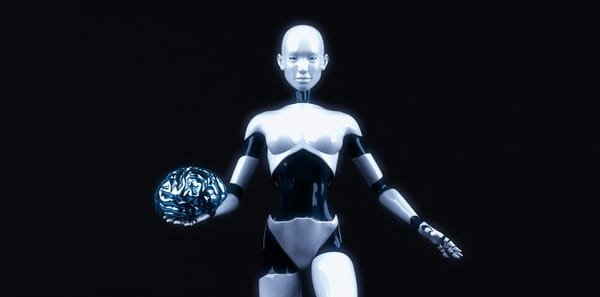The Impact of Machine Learning on HR Processes
HR procedures are being completely transformed by machine learning (ML), a branch of artificial intelligence that offers automation, predictive analytics, and improved decision-making abilities. The impact of this technology on HR is enormous since it presents creative means of optimizing processes, enhancing employee satisfaction, and informing strategic choices. Let's examine the different ways that machine learning affects HR procedures.
Transforming Recruitment and Talent Acquisition
1. Automated Resume Screening: By effectively sorting through thousands of resumes, machine learning algorithms can find applicants that most closely fit the job specifications. The initial screening procedure takes much less time and effort because of this automation.
2. Predictive Analytics for Candidate Selection: ML can forecast a candidate's success in a particular role by analyzing past hiring data. HR managers can use this predictive insight to make better hiring decisions.
3. Improved Candidate Experience: By providing personalized job recommendations and interesting communication experiences, machine learning algorithms can help candidates feel more like part of the recruitment process.
Improving Employee Retention and Predicting Turnover
1. Analytics for Predictive Turnover: Patterns and other factors that contribute to employee turnover can be found using machine learning. ML can identify which employees are likely to leave and for what reasons by examining data such as performance indicators, employee engagement scores, and feedback.
2. Customized Retention Plans: By utilizing predictive analytics, HR can create employee retention plans that are specifically tailored to the requirements and worries of at-risk workers.
Simplifying Human Resources Activities
1. Automated HR Help and Inquiries: Routine HR inquiries can be handled by chatbots driven by machine learning, which can provide prompt answers and free up HR personnel to work on more difficult assignments.
2. Improved Data Management: Big HR data can be more effectively organized and analyzed by ML algorithms, which improves decision-making and operational efficiency.
Enhancing Education and Development
1. Customized Learning Paths: With machine learning, training and development plans may be made to fit the needs, learning preferences, and professional goals of each person.
2. Skill Gap Analysis: Machine learning (ML) can detect skill gaps in the workforce and suggest suitable training programs to close these gaps by evaluating performance data.
Improving Performance Analysis and Employee Engagement
1. Sentiment Analysis: To determine general employee sentiment and engagement levels, machine learning algorithms can examine employee comments, surveys, and communication patterns.
2. Performance Prediction: Using past data, machine learning algorithms can forecast the future performance of workers, assisting managers in identifying and grooming high-potential personnel.
Ethical Issues and the Mitigation of Bias
1. Bias Mitigation: Machine learning is sensitive to biases in the training data, even if it can lessen human biases in decision-making. HR specialists need to guarantee the impartiality and fairness of ML algorithms.
2. Ethical Data Use: It is crucial to take ethics into account while using employee data. HR needs to guarantee employee privacy and be open about how machine learning is applied.
The effects of machine learning on HR procedures are extensive and diverse. ML presents a plethora of options for HR innovation, ranging from recruiting and talent acquisition transformation to employee retention optimization, operational simplification, learning and development improvement, and performance analysis enhancement. However, in order to ensure that machine learning is applied in a fair, transparent, and respectful manner that respects employee privacy, HR professionals must also be aware of the ethical implications and any biases connected with the technology. Machine learning will probably become more sophisticated in its integration into HR procedures as it develops, providing even more opportunities to improve HR operations and support corporate performance.




